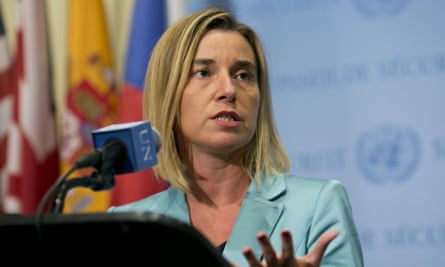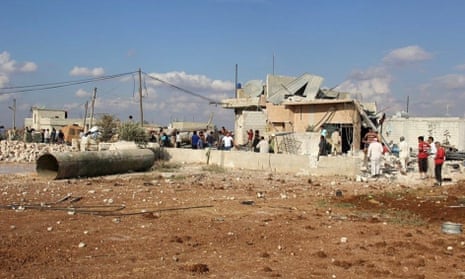Commentators are right to highlight the potentially devastating effects of an escalating proxy war in Syria. As each day passes, the situation seems to become increasingly fractious, muddied and perilous.
Jihadi rebels are now forming a pact “against Russian occupation”, while foreign fighters continue to flood into Syria to fight for Islamic State, a terrorist organisation that continues to promote atrocities against Europe and the US alike.
As if the situation weren’t complicated enough, this week Russian planes crossed into Turkish airspace, triggering a strong rebuke from Nato. As Syria is turned into hell on earth, the people of Syria are brutally massacred in their thousands.
With so many military forces operating in the vicinity and little operational communication, it is surely only a matter of time before the military forces of the global powers operating there stumble upon each other once again. This is a dangerous game.
Given these developments, it is peculiar to me that the European Union, as the neighbouring region, the one most likely to be negatively affected by such an escalating conflict, has failed to so far even agree a common position on the Syrian crisis, let alone launch an effective response to it. Meaningful engagement has been muted by our own divisions. Europe’s failure to act is fast becoming a gross dereliction of our leaders’ duties to protect the European interest.
Donald Tusk, the president of the European Council, suggested this week that some of Europe’s neighbours may be using migratory waves as a weapon, a new form of hybrid warfare against the European Union. This was a bold statement, but perhaps there is some truth to it. As we know from his funding of far-right parties across Europe, the destabilisation of the European Union is a key foreign policy objective for Vladimir Putin. A strong and united European Union must surely be one of the strategic developments he fears most. If further chaos in Europe, in particular in the western Balkans, is a spin-off of his intervention to save Assad, so be it.
Now that Russia is bombing rebel areas across the country, it’s likely that the refugee crisis currently shaking Europe to its core will worsen considerably. The latest estimates show more than 12 million people are now displaced by this conflict, many of whom will hope for refuge in Europe. Yet, so far EU leaders have shown no collective political will to solve the causes of their displacement. This cannot continue ad infinitum. The youthful institutions Europe has forged together are ultimately ill equipped to deal with the multiple crises it faces.

Our starting point must be to recognise that only a broad regional political settlement involving all of the powers conducting proxy wars on the territory of Syria will end this bloody civil war. Given the regional complexities and vested interests at stake, it will be difficult for Russia and the US to forge a deal bilaterally. A united Europe, speaking with one voice, could play an important role in steering a path to peace.
Not only does Europe have an overriding interest in securing its immediate neighbourhood, it has recent experience of helping to deliver a nuclear deal with Iran. The Iran nuclear deal showed what the European Union can achieve when it works together with one voice and engages other global powers.
Just two months ago, the international community in the form of P5+1, framed by the UN security council and led by the EU, concluded an unprecedented agreement with Iran. Federica Mogherini, the EU high representative for foreign affairs and security policy and vice-president of the EU commission, and US counterparts should now use the experience and the momentum created by this deal to come up with an initiative to develop, within an international framework, a vision for the stabilisation of Syria and the broader region. This means initiating an effort to find a political solution that could bring an end to the four-year conflict in Syria and a much more serious effort by the anti-Daesh coalition to stop the spread of Islamist coalition forces.
The EU’s foreign affairs council meets next week, and will adopt conclusions on Syria. Mogherini must use this opportunity and be given a mandate from the foreign affairs council to engage in a political process that can deliver a settlement with Syria as a secular state: a Syria without Isis and without Assad.
Of course, this will be fiendishly difficult to deliver. But the consequences of inaction and the continued deterioration of the whole region are unthinkable. A diplomatic process to deliver a political settlement for Syria must be aggressively pursued by European leaders now, before we are overtaken by events.
